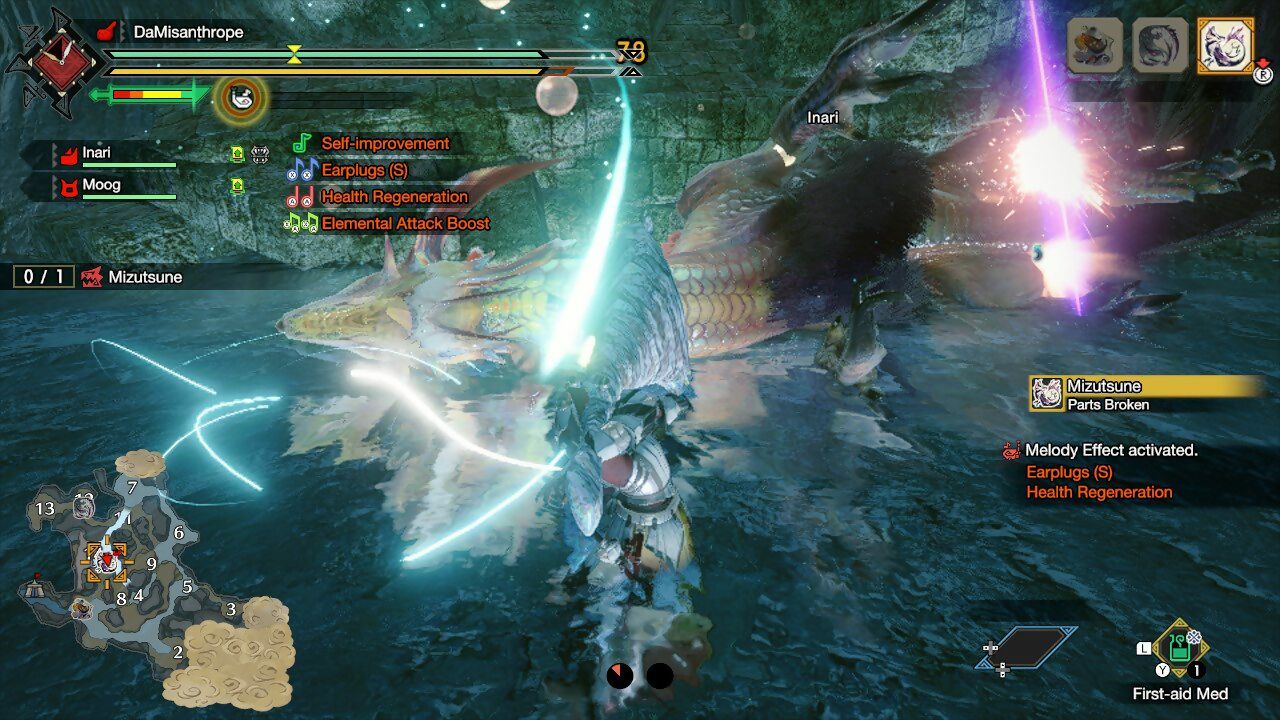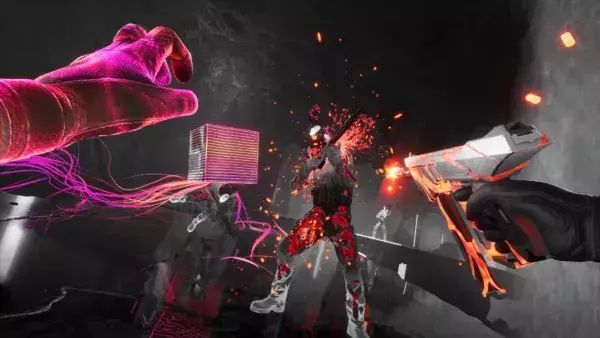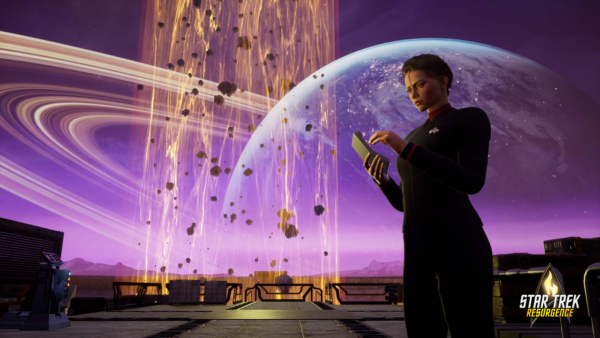
Monster Hunter Rise is an apt title given the game’s greater verticality in exploration and traversal, as well as a theme taking inspiration from the Land of the Rising Sun itself. Yet it would be equally appropriate had Capcom chosen to call it Monster Hunter Turbo.
Although the series’ reputation is assured, veterans will know that Monster Hunter has traditionally involved a lot of, for lack of a better word, faff. Quests still give you a maximum of 50 minutes to complete, but players who know what they’re doing will be able to breeze through a hunt in about ten minutes. It’s not simply a case of Rise being an easier game, but rather all the ways the experience has been streamlined to get you into the hunt quicker.
These quality-of-life changes were already evident in Monster Hunter: World, which became the series’ first global success, but Rise doubles down on the approach. You don’t even have to track monsters anymore, they’re just marked on the map – first as a question mark, but then as an icon in subsequent encounters. Traversal is also sped up thanks to the introduction of rideable dog companion Palamutes (in single-player, you don’t need to compete with your regular feline Palicoes as you can opt to take one of each with you), which makes catching up to monsters a cinch. Better yet, you can ride them while still being able to sharpen your weapon or gather materials in the wild, along with other enquickened activities like mining (ore is now in bountiful supply).
The most transformative highlight of all is the Wirebugs. You’ll actually find plenty of other life that can grant buffs, but these insects produce iron silk threads, which means you can use them to grapple the air, swinging up and around, and even for climbing up virtually any wall or cliff face, like Breath of the Wild, while secrets are hidden around each area to make the exploration worth your while. It also means almost every weapon has an aerial attack instead of just the Insect Glaive, though these Wirebugs also allow you to unleash new Silkbind Attacks that have generous enough cooldowns to make them regularly viable tactics.

Vegetarians will be pleased that meat’s off the table, with pre-hunt buffs coming from mixing and matching dango. The accompanying jingle is also wonderful.
With the ability to unlock and switch other skills to fit your playstyle, it makes each of the game’s 14 weapon types fresh once more. A few are even easier to use now, such as the Hunting Horn, on which you no longer need to memorise complex notes to perform its buff-giving melodies – and given that forging weapons doesn’t require nearly as many materials as past games, again cutting down the grind, maining multiple weapon types feels considerably more compelling.
Long-time hunters may complain that hunts are too easy, especially the single-player Village Quests where even flagship monster Magnamalo can feel like a cakewalk, although this area feels more purposely designed to onboard new players before the action ramps up with the multiplayer-focused Hub Quests, which are nonetheless still viable for solo play thanks to dynamic difficulty scaling. Of course, it’s not really Monster Hunter without co-op, and it’s incredible just how smoothly online works in Rise. Not just for a Switch title but even compared to World, whether you’re joining the lobby of a friend or a hunter you sent a ‘mutual like’, or just letting anyone drop into your hunt mid-quest.
At launch, there may not be a need to painstakingly grind for the best gear to survive against the most formidable bestiary – even if that’s what compels hardcore players to put in hundreds of hours in the long run. But Rise makes the game so much more accessible to newcomers, making it feasible to pick up the Switch for a quick hunt.

Despite the lack of voice chat, communication is clear thanks to hunters’ new voice cues, as well as preset messages and stickers that auto-translate.
Besides, it’s hard to complain when all the new tools just make combat feel so much more fun and fluid than it’s ever been, with a solid frame rate even in intense multiplayer sessions that feels smoother than its supposed 30 fps. It’s a solid foundation to raise the challenge in the endgame post-launch: the first update will have gone live by the time you read this.
Rise isn’t just a better game than the already excellent World, with the potential to rise to further greatness with future updates, it’s also filled with more of the series’ trademark charm. It’s not just down to its Japanese theme, from the evergreen cherry blossoms of Kamura Village to the new yokai-inspired monsters like Aknosom and Goss Harag, but also in the unfiltered variety of weapon and armour designs – just a couple of highlights include the Hunting Horn, where one looks like a mariachi’s colourful guitar, while the Khezu Horn looks every bit as gross (yet also rather brilliant) as the dreadful monster you’ll be carving parts from in order to forge it.
Last year, Switch players were spending days building their dream deserted island with Animal Crossing: New Horizons. For those itching for some action, Monster Hunter Rise’s insatiable loop makes it the perfect desert island game.
Highlight
A Monster Hunter tower defence mode is something I never knew I wanted, and that’s precisely what you get with Rampage Quests. Through two or three rounds, you’ll build ballistas, cannons, and artillery to repel hordes of monsters intent on storming Kamura Village. The escalating chaos is brilliantly frenetic, even more so when you dive into the scrum with Wyvern Riding. It’s remarkable seeing four hunters taking on five or six beasts on-screen at once while the Switch performance never falters.
Verdict: 92%
More fun, action-packed, and accessible than ever, Monster Hunter Rise raises the bar on what the Switch is capable of, with visuals, netcode, and personality that’s truly world-beating.
Genre: Action RPG
Format: Switch (tested)
Developer: Capcom
Publisher: Capcom
Price: £49.99
Release: Out now





